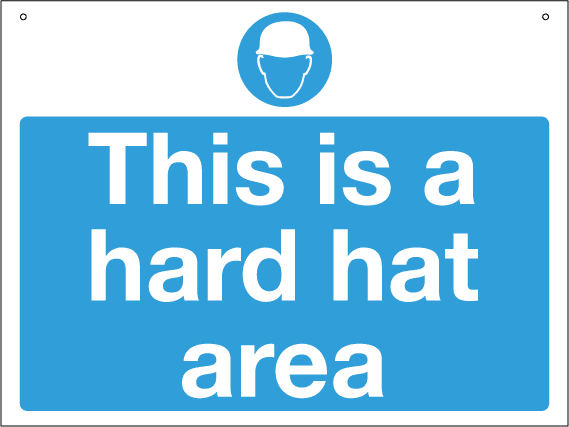 Hungry for honest advice from a pro SAT tutor and perfect-scorer? Sign up for the SAT mailing list to maintain a connection and get premium information… plus instantly receive free SAT prep bonuses!
Hungry for honest advice from a pro SAT tutor and perfect-scorer? Sign up for the SAT mailing list to maintain a connection and get premium information… plus instantly receive free SAT prep bonuses!
I’ve been getting questions from students and parents lately about how important the SAT truly is to colleges, to you, and to your future.
Most students and parents fall on either of two sides – either they’re hung-up on the idea that their SAT score is the only thing that matters, or they’re not concerned enough and unrealistic about the importance of SAT scores.
How important are SAT scores to colleges?
One fact about the SAT that can’t be denied is that colleges and scholarship committees will take a serious look at your standardized test scores and form a flash judgement about your academic abilities and intellect.
It’s just human nature, in my opinion.
The SAT is an attempt at a numerical assessment of your Critical Reasoning skills, and whether it’s completely accurate or not, the fact remains that a high SAT score makes a positive first impression.
I mean, if you were an admissions officer for a popular school fielding tons of applications each year, would you start going over an application by:
A) Reading 1500 words of personal essays,
B) trying to evaluate their high school transcript without necessarily having a basis of comparison for different high schools across the country or
Get Exclusive SAT Prep Tips!
I want to send you more tips to help your SAT score, but I need your email address to stay in touch. Enter your email below so I can send you my reports on the SAT and other subscriber-only bonuses.
C) take a quick glance at their SAT scores?
Most people will go for “C.”
Humans make snap judgments every day based on incomplete information, and admissions officers aren’t any different.
So, one reason your SAT scores are important are that they will make a good or bad impression on the people reading your applications.
Colleges will look over your Math, Critical Reading, Writing Multiple-Choice and Essay SAT subscores to get an idea of where your strengths lie.
If you’re applying to highly selective and difficult engineering schools like MIT or Carnegie Mellon, they’ll want to see evidence of high math aptitude, for example. A liberal arts school may be more interested in a well-rounded score.
However, what will that admissions officer do once they’ve sized up your SAT scores?
What do colleges look at other than your SAT score?
They’re going to move on right away to your high school transcript, your extracurricular activities, athletics, personal essays, art and music portfolios, and the like.
They really are interested in you as a complete person that will add to their campus.
I mean, think about it – everyone’s heard of the 2400 students getting rejected from colleges.
It happens. Maybe they slacked on their grades, thinking they had it made with their perfect SAT score (admissions officers HATE that attitude). Maybe they spent every waking hour studying and lead a very one-sided and boring life. Maybe their personal essays are incredibly cliched and boring.
In fact, great SAT scores with bad grades makes for one of the worst applications you can send in to most colleges. Colleges know immediately that what they’re looking at is a bright slacker – a student who squanders their abilities and potential in laziness.
Believe me, that application is going right back to the bottom of the pile, and that’s if it’s not immediately rejected.
Students with lower SAT scores beat out those with higher scores for positions in the top colleges all the time. It’s not even unusual.
SAT scores are very important to colleges and scholarships, but there’s more to your application:
I would put your SAT score at about 25% of your college and scholarship applications.
Another 40% or so- the largest chunk – is based on the difficulty of the courses you’ve taken in high school and the grades you’ve gotten in them.
As someone once said, when it comes to academic success, “past performance is the best indicator of future performance.” If you don’t put in the work in high school classes, the colleges are thinking “no way is this student going to work hard at our college.”
I’d split the remaining 35% between extracurricular activities/leadership positions (about 15%), your personal essays (15%), and your recommendation letters (maybe 5%, since most letters of recommendation say the same positive stuff as the last one).
If you’ve stuck with a few pursuits that you love for years, and developed a level of mastery in them, it will totally impress the colleges you apply to and can help round out and justify a less-than-stellar SAT score.
Likewise, a well-written personal essay can knock their socks off – sometimes I think your essays alone can get you into a college, if they really show what an incredible person you are.
Now, that being said, given the choice between two applicants with identical grades and personal profiles but different SAT scores, I think every college would pick the student with the higher SAT score.
That’s because colleges report the average SAT scores of their students, and when people “shop” for their college, they look at those scores as an indicator of selectivity and prestige (or a lack thereof).
It should come as no surprise to you that “prestige” and brand-name recognition are a big reason that the best colleges are perceived as the best.
Honestly, I’m a big believer that your education is what you make of it, and an intelligent, hard working student at a community college will go farther than a party-animal slacker that somehow got into Harvard.
However, that Harvard grad will have the advantage of being able to impress employers, colleagues, friends, and love interests with their “amazing” famous brand-name college degree, which basically marks them as “automatically intelligent” in many people’s minds.
So, all these colleges are competing to have students with higher SAT scores so they can show off, charge more money for their tuition, and attract the smartest students who will go on to make big names for themselves and send back endowment to their alma mater.
These are the types of reasons why SAT scores matter to colleges, but…
What about SAT importance to YOU?
In many ways, the SAT can be a bit of an ego trip for those who do well, and a source of frustration and personal blame for those who don’t.
I think this attitude arises from the massive amount of pressure that parents are putting on SAT scores nowadays and the importance of scores in college and scholarship apps.
Honestly, I think it’s pretty overboard, and many families are misinterpreting the purpose and importance of the SAT. We’ve started to equate SAT score with intelligence, and that’s just not how it is.
I’ve met plenty of very smart people who didn’t automatically get an amazing SAT score. I’ve also met some brilliant folks who did get a great score their first time.
The SAT just seems to play nicer with certain types of thinkers. Some people “get it” from the start, other smart kids just hate sitting in a room for 4 hours and don’t do as well as they should.
That’s why SAT prep is so important. Just getting 10-20 hours of practice and experience with the test – which is virtually nothing, spread over a couple of months – can make a world of difference in your readiness and familiarity with this bizarre exam.
So I just want to let you know – you may feel that your SAT score defines you as a person or a student. Well, I’m here to tell you: Your SAT score only defines you if you let it. DON’T let it. Your score is simply a piece of the puzzle that makes up your complex and amazing personality and abilities.
Keep it in perspective. If you do really well on the SAT, make sure you don’t get arrogant, or you’ll find yourself left in the dust by more humble, harder workers.
If you really bomb the SAT, just remember that there’s much more to life, and you can even try the test again if you want to!
What’s the importance of your SAT score when it comes to your future?
I’m not going to lie – for one test, your SAT score is non-trivial.
When it comes to your long-term success in life, the SAT is far more important than, say, a pop quiz in Spanish class. A good SAT score makes it easier to get into a great college, where you’ll make more impressive contacts, earn more prestige, potentially find a better job, earn more money, etc.
But the score doesn’t do those things for you. It just makes it a little easier to get yourself into a great position where you can do those things for yourself.
Think about how many famous millionaires and billionaires dropped out of college to start companies. Do you think they spent their time worrying about or congratulating themselves on their SAT scores? No. Definitely not.
Your SAT score is just not everything in the scheme of things. A good SAT score doesn’t guarantee you the good life. A bad SAT score doesn’t make you a failure.
Set goals, work hard every day, treat people around you with respect and kindness, and never give up. These are things that make you a success – these are the things that define your life.
So, get to work on something you care about!
For score-improving SAT textbooks from a pro tutor, visit my online bookstore!
Further Reading:
What is the SAT Test For?
How many times can you take the SAT?
50 Encouraging Reasons why Doing Well on the SAT Matters
Prepping the SAT at Home: The Complete Guide
How to Get into College: The Complete Guide
Additional Resources:
Visit my Online SAT Prep Bookstore
Griffin SAT: A Complete Course on Acing the SAT (Video Course)
Winning College Scholarships (Video Course)
Wait! Did you learn something useful or interesting from this post? If so, sign up for my SAT e-mail list for more pro tips delivered straight to your inbox and subscriber-only exclusive bonuses.


















Find Me on Social Media